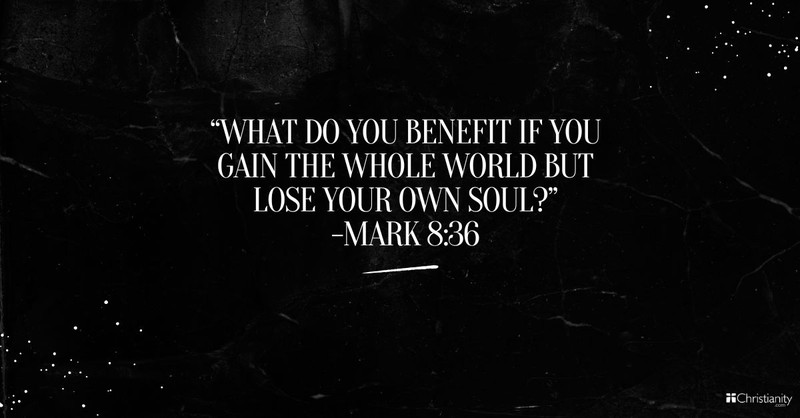
I bet you’ve been there. A very real crisis threatens to ruin everything, so in your desperation, you cry out to God for help. Weeks, months, or even years pass as you struggle with or stare down a worst-case scenario. And then, one glorious day, the problem goes away, and you experience relief, exactly as you asked.
Then something strange happens. You are rightfully elated at the moment, but before you know it, the busyness of life sweeps you away into the next calendar event or issue. Soon, you ] rarely think about the very crisis that once consumed your thoughts and energies. Why does this happen? Because the best things in life are also the most easily overlooked.
To lose sight of the good is not only a human thing, it is also a biblical one. In Luke 17, we find ten lepers living in the most desperate predicament. These poor people in such a wretched state cry out to Jesus, and in his mercy, he heals them. But then a crazy thing happens: only one of them actually slows down long enough to return to offer gratitude, prompting a well-known reply from Jesus: “Were not all ten cleansed? Where are the other nine?” (verse 17)
Ouch. My whole life, I’ve read this story and thought to myself: be the one good, grateful leper, not one of the nine bad ones. But what if there is more to it than that? Here are six insights about the ten lepers and gratitude that just might slow you down and change your life.
1. I’m All Ten Lepers
Most people tend to boil life down to two options. Good or bad. Nice or mean. Grateful or ungrateful. Yes, sometimes life is this simple, but often, there is much more than just one thing going on within us. The “fools” repeatedly referenced in the book of Proverbs aren’t always the same person—that is, there isn’t just a fool who does everything wrong and a wise person who does everything right. Depending on the situation and my response, I can be wise, or I can be foolish. I am never always one or the other. I might be wise with money but foolish in relationships. Wise in how I deal with my boss, but foolish in how I deal with my child. Solomon himself was wise in many ways yet foolish in many others.
In the same way, I don’t have to interpret the main takeaway of the biblical narrative of the ten lepers as merely a black-and-white cautionary tale about one good guy and nine bad guys. Truth is, I’ve acted like all ten guys at some point in my life. More clearly stated: for all that God does in my life to answer prayer and show up for me, nine times out of ten, I don’t slow down and truly return to Christ to say thank you.
I doubt the other nine guys didn’t return because they weren’t feeling grateful. They probably just got caught up in the speed of life, including the new miraculous blessing of being leprosy-free. Feeling relieved and returning to give gratitude are two different things. Gratitude forces us to pause and examine God’s work in our lives, not just benefit from it as we keep moving forward. The fast speed of life makes gratitude difficult, but the slower speed of gratitude makes life in Christ real, evident, and fulfilling. Gratitude slows us down to the speed of real life—life that is eternal—because it requires us to examine what God actually does for us.
Photo Credit: ©GettyImages/shironosov

2. Entitlement Kills Gratitude
It seems counterintuitive that the best things in life are the easiest to overlook, but it rings true. You would pay greater attention to a moment when you couldn’t breathe than all the infinite moments you easily take breaths without thinking. Breath is a pivotal thing—one of those “best things”—but because we are given so much of it, we become accustomed to it. Having no money in your bank account gets your attention more than having enough. Suddenly, running out of the road gets your attention more than the road stretching before you. In a word, we inadvertently become entitled to the most important and abundant gifts of God. After all, God’s unfailing love fills the earth, just like the infinite air that allows us to breathe.
Why didn’t the nine lepers return? We really don’t know, but regardless of their intent, their actions reveal that whatever they went to do after their healing (including showing themselves to the priest, per Jesus’s instructions) somehow became more urgent than returning to give thanks. I doubt it was intentional entitlement but rather the kind of entitlement I often recognize in myself. I have become so accustomed to God’s goodness that it begins to feel more like my normative right rather than his continual acts of grace. In this way, entitlement can blind us to God’s goodness. It leads us to chase other things while losing touch with that which feeds our souls.
Jesus’ words in Mark 8:36 are a compelling reminder: “What do you benefit if you gain the whole world but lose your own soul?” We tend to think of this verse only in terms of salvation, but I think there’s more to it. Every time I try to gain the world to the point that I lose sight of God’s goodness in my life, I lose some part of my soul. Gratitude shifts my focus, reminding me that every good thing is a gift from God. And the continual good news of the gospel invites me to keep regaining my soul by receiving again and again the infinite love of God. But when I stop seeing this love as miraculous, gratitude falls by the wayside, regardless of what God has done for me.
Photo Credit: SWN Design

3. We Teach Our Kids to Say Thank You Because it’s a Habit They Need to Learn
Gratitude doesn’t come naturally; it’s something we have to practice. Just as we remind children to say thank you, we need to remind ourselves to pay attention to what we’ve been given and return to say thanks. Without intentionality, gratitude can get lost in the chaos of daily life.
One practical way to cultivate gratitude is to make a plan. Make a plan to slow down and be grateful, even if it fails. Start small. Spend five minutes in silence reflecting on God’s blessings, or write down three things you’re thankful for each day. Keep a gratitude journal. Another helpful step is to reduce distractions. Try living eight hours with no news, social media, or sports. When we step away from the noise, we begin to notice the blessings we’ve been overlooking instead of running past them.
And when gratitude feels impossible, ask God to help you both desire and live a slower, more grateful life. Over time, these habits will become rhythms that draw us closer to God. Gratitude, like any discipline, requires the right kind of effort. Effort, not earning. We don’t have to transform our perspective to become grateful. Rather, prayerfully pursuing habits of gratitude will transform our perspective.
Photo Credit: ©Getty Images/Mayur Kakade

4. Gratitude Helps Us Stay in the Eternal, Even as We Pass Through the Temporal
One of my favorite sentences from the Book of Common Prayer reads, “Grant, O Lord, that as we pass through things temporal, we lose not the things eternal; through Jesus Christ our Lord. Amen." Gratitude has a unique way of grounding us in what matters most. In a world that pulls our attention toward the temporary, gratitude redirects us to the eternal.
Amy Carmichael once said, “The tests are always unexpected things, not great things that can be written up, but the common little rubs of life.” Whether it’s a flooded garage, a delayed flight, or a tough conversation, these moments can greatly challenge our ability to keep our eye on the life that is higher, more real, and eternal—the life we already have in Christ. Gratitude shifts our perspective, helping us re-see God’s faithfulness, even in the temporary challenges.
Psalm 100:4 reminds us to enter God’s gates with thanksgiving and his courts with praise. Slowing down to be grateful is one way to let go of that which robs us of life and take hold of that which is truly life. As the Psalmist says, when we thank God, we enter his gates—we draw closer and become more aware of his ongoing nearness in our current situations.
The one leper who returned to thank Jesus didn’t just receive physical healing—he experienced something deeper. Jesus told him, “Rise and go; your faith has made you well.” But I thought he was already made well? He had been physically healed, but perhaps this moment also made him well in his soul and personhood. When I slow down to be grateful, I let go of worry, entitlement, and the distractions that rob me of life. It restores my soul.
Related Resource: How Gratitude Can Quiet Your Anxiety
"He who fears he shall suffer, already suffers what he fears." - Michel de Montaigne. This guy said that in the 1500s… so anxiety has been around for a while. In this episode of Talk About That, we talk about fear and worry - is there a way to get better at worry? Can we worry less in 2025? Is that a resolution we can keep? Listen in to our conversation about gratitude and actively looking for the good in the world as an antidote for anxiety. If you laughed out loud listening to this episode, be sure to subscribe to Talk About That on Apple and Spotify!
Photo Credit: ©Unsplash/Nick Page
5. Every Thought and Expression of Gratitude Is Prayer
Many of us struggle to know how to pray. What words should we use? How do we stay focused? The good news is that gratitude is more than a polite response; it’s a form of prayer. If I don’t know how to pray, every thought and expression of gratitude is prayer. Each time I pause to thank God—even if I haven’t done it the last nine times out of ten—I’m praying in a very real and transformative way.
Gratitude doesn’t change God—it changes me. He doesn’t need it; I do. It reminds me that every blessing—big or small—is an invitation to return to him. Gratitude opens my eyes to the beauty of God’s faithfulness. It slows me down and draws me closer to the life that is truly life.
Photo Credit:

Originally published Monday, 20 January 2025.










